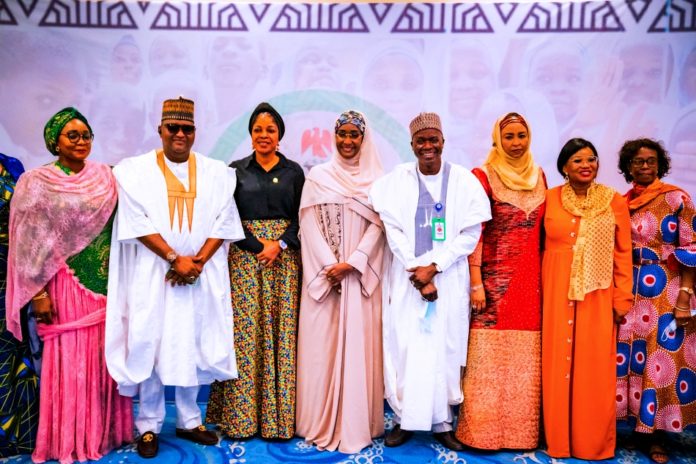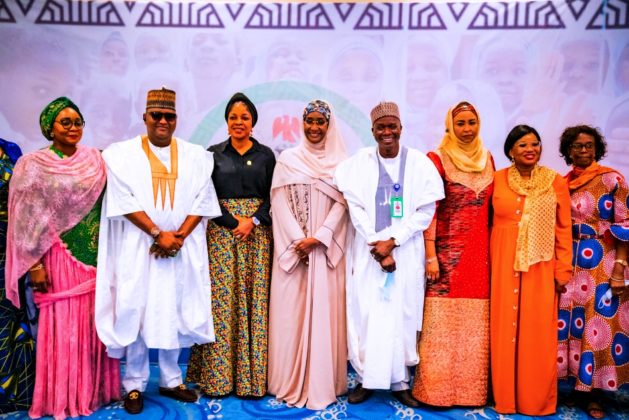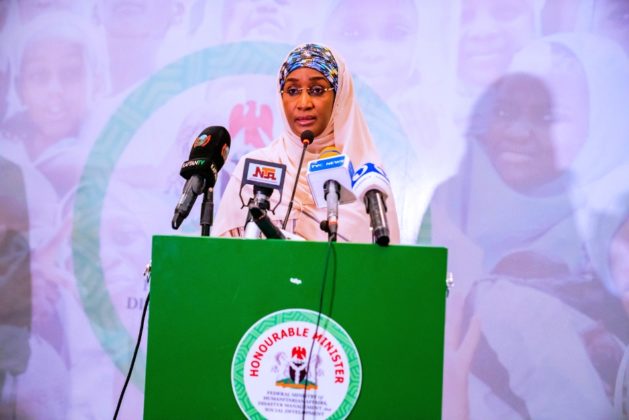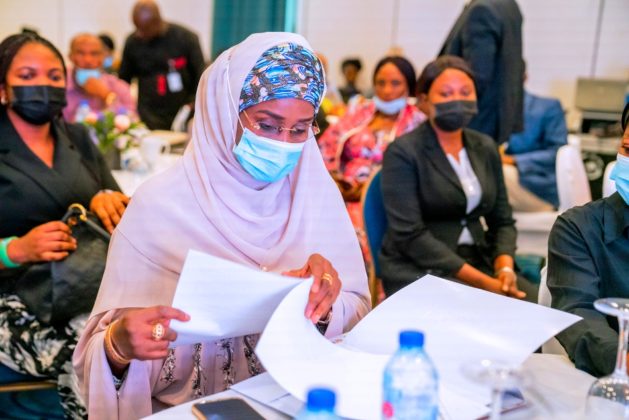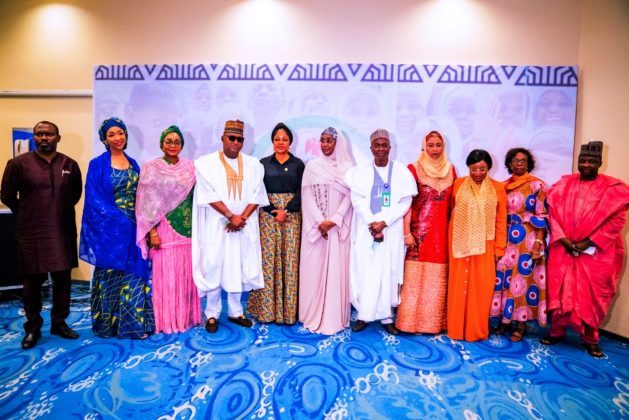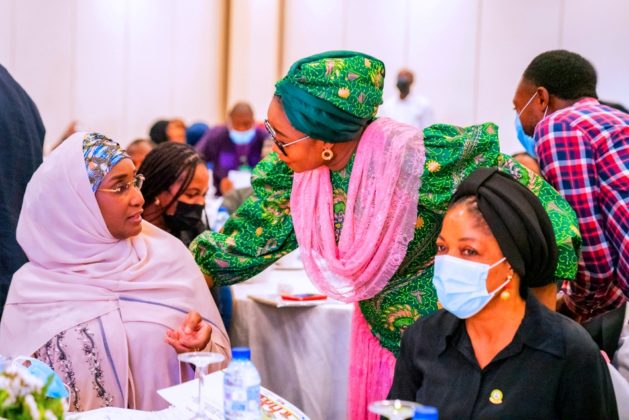-Humanitarian Ministry to build 60 Model School Kitchens
The Federal Government has upwardly reviewed the National Home Grown School Feeding Programme meals from N70 to N100 a plate per child.
The Minister of Humanitarian Affairs, Disaster Management and Social Development Sadiya Umar Farouq made this known at the Commemoration of the 7th Africa School Feeding Day held in at Transcorp Hilton Abuja on Tuesday.
Umar Farouq thanked President Muhammadu Buhari for the increment, adding that it came at a time when all hands are on deck to ensure that all public primary school pupils 1-3 are enrolled in the programme.
“I will like to seize the opportunity to commend His Excellency, President Muhammadu Buhari, for the recent approval granted by the Federal Government of Nigeria for the upward review of the daily cost of feeding from N70 to N100 per meal per child, which comes along with increased monitoring and tighter regulations. This is coming at a time when there is an urgent need to ensure that our children are not left behind in the development process, especially in the wake of the devastation caused by the COVID-19 global pandemic to the stability of millions of Households here in Nigeria.
“That is precisely why in 2020, as part of the government’s efforts to cushion the effects of the pandemic, the Ministry provided dry take home rations to targeted households of pupils on the program in Lagos and Ogun States, and the FCT. This is in line with our mission and mandate to ensure that all Nigerians in need are heard, seen and included”.
The Minister also revealed that
series of initiatives were already being deployed to enhance effective programme delivery.
“We are currently working on a policy framework for the program, and will also be rolling out quality assurance structures, along with the introduction of the concept of School Kitchens in 60 model schools across the Nation. These School Kitchens are designed to serve as models, as well as training and skills building centers for cooks and other vendors of the programme”.
The minister also said that arrangements were underway to provide two free meals for Out-Of-School Children from the NHGSFP scheme as it rolls out the Alternate School Programme (ASP) soon.
She thanked the Nutrition Society of Nigeria and the National Agency for Food and Drug Administration and Control (NAFDAC) for providing the required regulatory oversight and monitoring compliance on hygiene, food safety and meal quality standards. The Ministry is also working closely with the World Food Programme (WFP), which is providing technical support, capacity building and policy guidance in the implementation of the NHGSFP.
Earlier, the National Coordinator, National Social Investment Programmes Dr Umar Bindir noted that the School Feeding Programme introduced in 2016 has impacted on school children through a significant increase in school enrolment and attendance and improvement in the nutrition and health status of beneficiary pupils.
The programme currently has a total of 9,881,773 million enrolled children in over 53,000 schools, of which 4.1 million pupils have so far been verified and captured on the NHGSFP Database, in line with the Ministry’s ongoing efforts at establishing a verifiable database of beneficiaries across all of its programmes and interventions
Other speakers at the commemoration of the Africa School Feeding Day include the National Cordinator and Chief Executive Officer at New Partnership for Africa’s Development, NEPAD Nigeria Princess Gloria Akobundu, the Representative the Nassarawa state Governor, NEPAD’s Nutrition and Food Systems Project Manager Kefilwe Rhoba Moalisi and other stakeholders.
The theme for this year’s edition of the Africa Day of School Feeding is ‘Nutrition and human capital development in Africa through increased investment in home grown school feeding’.
NNEKA IKEM ANIBEZE
SA MEDIA



